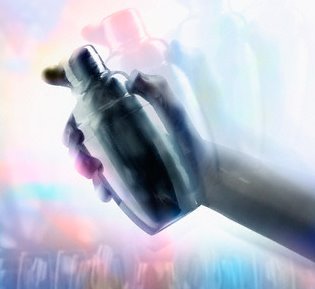The American Way of life is individualistic, dynamic, pragmatic. It affirms the supreme value and dignity of the individual; it stresses incessant activity on his part, for he is never to rest but is always to be striving to "get ahead"; it defines an ethic of self-reliance, merit, and character, and judges by achievement: "deeds, not creeds" are what count. The "American Way of Life" is humanitarian, "forward-looking", optimistic. Americans are easily the most generous and philanthropic people in the world, in terms of their ready and unstinting response to suffering anywhere on the globe. The American believes in progress, in self-improvement, and quite fanatically in education. But above all, the American is idealistic. Americans cannot go on making money or achieving worldly success simply on its own merits; such "materialistic" things must, in the American mind, be justified in "higher" terms, in terms of "service" or "stewardship" or "general welfare"... And because they are so idealistic, Americans tend to be moralistic; they are inclined to see all issues as plain and simple, black and white, issues of morality.As Ralph C. Wood (Flannery O'Connor and the Christ-haunted South), later noted "the first half of Herberg's statement still holds true nearly half a century after he first formulated it," even though "Herberg's latter claims have been severely if not completely undermined... materialism no longer needs to be justified in high-sounding terms."
This is why, I beset you,


Eternal vigilance is the price of liberty:













Now, having had three glasses of a good Pacharan (and it’s still early in the evening) I’m ready to go........ Watch it!
ReplyDeleteThat quote, at the top, really captures something, a truth regarding how we look at ourselves. Or where that truth has gradually morphed from. And in 1955 (even though we were all, or mostly, half mad then) it even still had some truth. Or seemed to.
Though those of us who were around then may remember such unsettling, unbecoming matters as the Cold War, Jim Crow, quotas on Jews, McCarthyism, gay bashing, women with PhDs working as typists, the wail of much protest art such as jazz, Beat poetry, etc.
But true enough, Ronald Reagan unloosed the flood gates later on. And Capitalism no longer remained timid or self-conscious. Greed became openly good.
I may only be revealing my ignorance here, but nowhere else in the world, it seems to me, has Capitalism been as triumphant as it is here. Why, even a simple sense of the “public commons” risks the “Socialism” brand, with all its Stalinist connotations. Nor, need I add, are we even particularly honest with ourselves. That may be perhaps why it is so easy to unite the American MSM’s vision of ourselves with what we actually think of ourselves. The MSM outlines our fantasies and lies. Our mythology and cultural definitions of ourselves. When Sarah Palin says she can see Russia across the waters from her native Alaska she is saying if for us all. That’s pretty much how we see the rest of the world: as a foreign figment taking up a distant place meaning whatever we want it to mean. One thing for sure, though, it isn’t hallowed like our own America. Strange people dwell there. Probably not civilized.
Generalizing now, how many of us think of Americans as actually living in the comfortable upper middle-class houses we routinely see on our advertising? How many of us relate with the upper middle-class family group prancing about, broadly smiling, in a pleasant sunny yard with a dog, a toddler, and a bright new shiny car parked on the driveway? Seeing this night after night do many of us conceive of our country as appearing any other way? Isn’t this the bright shining “city on a hill” we all perceive? Or wish to perceive?
Our current mythology may have been defined in the fifties. While Europe was experimenting with genuine Socialism in order to lay a social safety net we were off and running on a national splurge. We were the country, after all, with giant cars sporting giant fins. Gas was fifteen or twenty cents a gallon. We needed big cars to cross those desert wastes or the broad midwestern flatlands. We were on top of the world then. The Europeans were extracting themselves from the rubble we had saved them from. A whole new generation of middle-class kids didn’t even know what a Nazi appeared like except from the movies. We were always the heroes. And we had a golf player president who believed what is good for General Motors is good for the country. Never mind all those blacks, the poor, the sufferings of minorities, including women (a minority?), when the country was doing so well. They didn’t really count. Most of us were doing good.
Through the fog we see all around us it’s hard to tell what the truth is. Are Americans, as a whole, more realistic than the Americans the GOPers portray? Do they, the American people, believe the “public option” is actually Socialism? Will they kill it in order to spite their faces? Even though it actually makes life worse for themselves? An ideology? A vision of ourselves?
Let’s not forget, there are places in the world where the working-class sees itself as a working-class. With its own class interests. Is ours the only country where everyone sees himself as “middle-class,” including janitors and cab drivers? And what would Bill Gates call himself? Probably..... Middleclass.
And furthermore......
ReplyDeleteNo, no, no, don't worry. But it does feel good to drink.